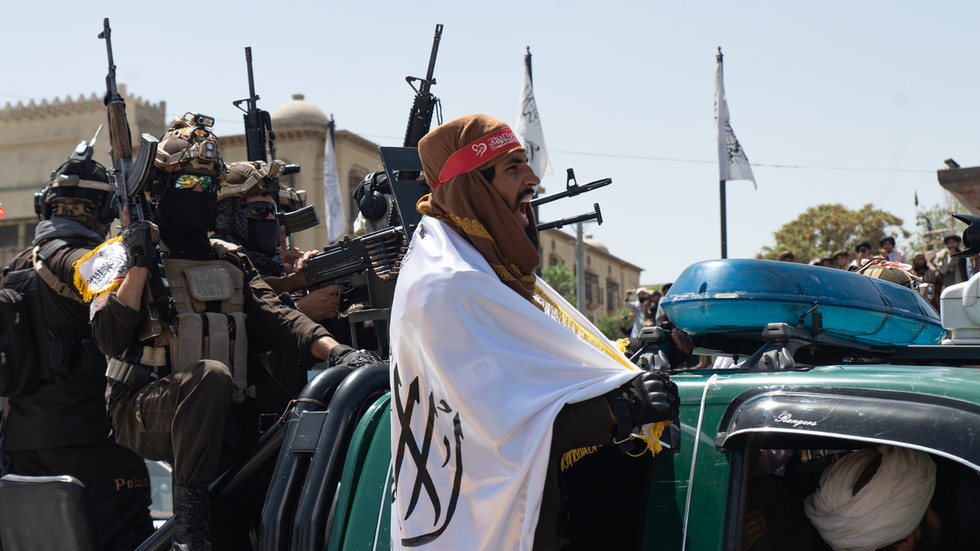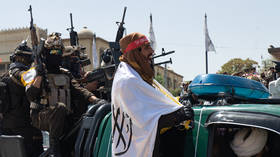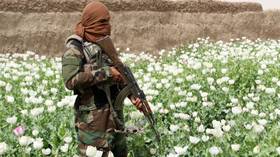
The Islamist group that rules Afghanistan has made “unacceptable” demands, UN chief Antonio Guterres said

Taliban supporters hold a parade to mark two years since the group’s return to power, August 15, 2023, Kabul, Afghanistan. © Getty Images / Nava Jamshidi/Getty Images
The Taliban has refused to attend a UN-sponsored conference in Qatar, insisting that their delegation should be recognized as the sole representatives of Afghanistan.
According to the Associated Press, the Taliban wanted to exclude Afghan “civil society members” who were invited to participate in the two-day meeting in Doha that wrapped up on Monday.
The spokesman for the Taliban government, Zabihullah Mujahid, had requested that the UN hold a meeting involving Afghanistan’s acting foreign minister, Amir Khan Muttaqi.
“We have asked for important issues to be discussed in the meeting but the absence of agreement between the UN and the Islamic Emirate means that the meeting will be a waste of time,” Mujahid told Tolo News.
READ MORE: Survivors found from Russian plane crash in Afghanistan
Not a single country officially recognizes the Taliban government, which took power in Kabul in 2021 during the final stage of the withdrawal of US troops. The UN also does not recognize the group’s authority over Afghanistan.
During a press conference on Monday, UN Secretary General Antonio Guterres dismissed the Taliban’s demands as “not acceptable.”

Read more
“These conditions denied us the right to talk to other representatives of Afghan society and demanded a treatment that would, to a large extent, be similar to recognition,” Guterres said. He called on the Taliban to lift restrictions on women’s access to education and employment, as one of the steps towards potential recognition.
The Taliban maintains that the status of women is a purely domestic affair. In a statement made prior to the meeting, the Afghan Foreign Ministry stated that the country “cannot be coerced by anyone,” and called for “a realistic and pragmatic approach” without “unilateral impositions, accusations and pressurization.”
The Taliban first came to power in Afghanistan in the 1990s and was ousted in 2001 during the US-led invasion. The Taliban insurgency carried on for 20 years, culminating in a march on Kabul in August 2021, during which internationally recognized President Ashraf Ghani was forced to flee the country.
After assuming power once again, the Taliban promised not to allow any discrimination of women. The group, however, soon adopted a set of regulations restricting women’s participation in public life. The move has drawn criticism from the UN and rights organizations.




